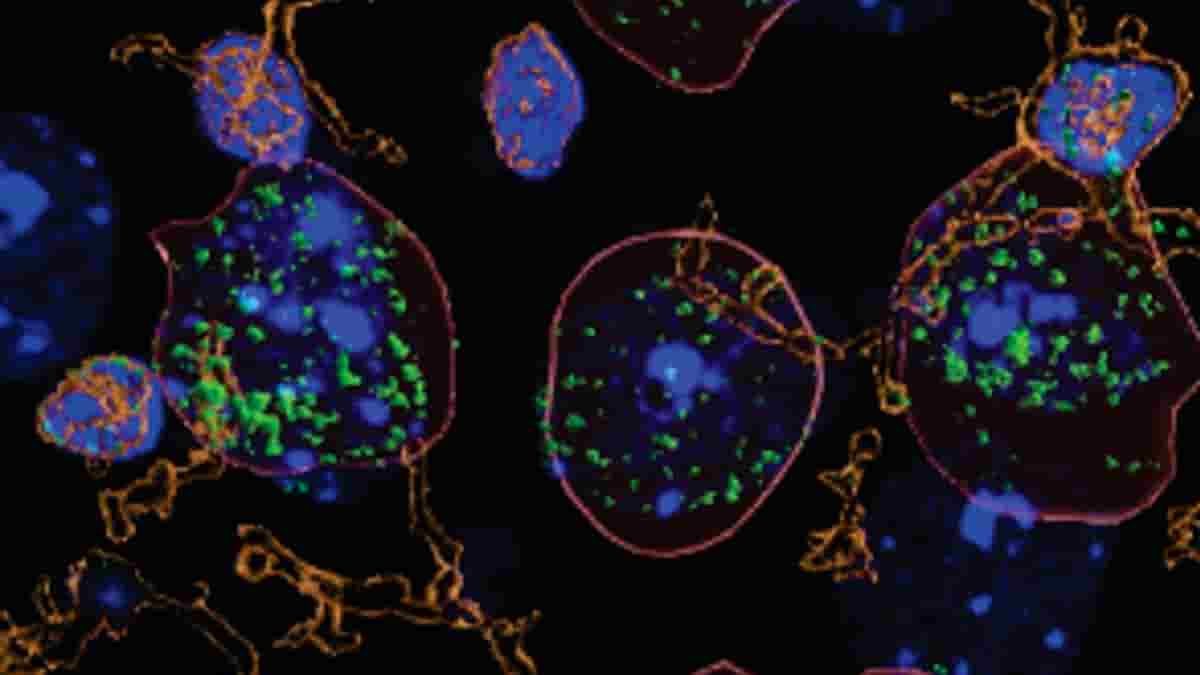Changes in the brain and changes in behaviour are locked in a vicious cycle for those with alcohol use disorder (AUD). The effects of AUD can worsen drinking by changing the brain’s signalling pathways.
Scripps Research scientists have now discovered new information about the immune system’s role in this cycle. They found that the immune signalling molecule interleukin 1 (IL-1) is present in higher concentrations in the brains of mice with alcoholism.
Furthermore, in these animals, the IL-1 pathway plays a different role, causing inflammation in critical areas of the brain known to be involved in decision-making.
“These inflammatory changes to the brain could explain some of the risky decision-making and impulsivity we see in people with alcohol use disorder. In addition, our findings are incredibly exciting because they suggest a potential way to treat alcohol use disorder with existing anti-inflammatory drugs targeting the IL-1β pathway,”
said senior author Marisa Roberto, Ph.D., professor of neuroscience at Scripps Research.
Alcohol Use Disorder Genetics
Alcohol use disorder is characterized by uncontrolled and compulsive drinking, and it encompasses a range of conditions, including alcohol abuse, dependence, and binge drinking. Researchers have previously discovered numerous links between the immune system and AUD — many of them centred around interleukin 1 beta.
For example, people with specific mutations in the gene that codes for the IL-1 molecule are more likely to develop AUD. Furthermore, autopsies of people with AUD revealed higher levels of IL-1 in the brain.
“We suspected that IL-1β was playing a role in AUD, but the exact mechanisms in the brain have been unclear,”
said first author Florence Varodayan, Ph.D., an assistant professor at Binghamton University and former postdoctoral fellow in the Roberto lab.
Twice as Much Interleukin-1
Roberto, Varodayan, and their colleagues compared alcohol-dependent mice to animals that drank moderate or no alcohol at all in the new study. The researchers discovered that the alcohol-dependent group had roughly twice as much IL-1 in the medial prefrontal cortex (mPFC), a part of the brain that regulates emotions and behaviours.
The researchers then demonstrated that IL-1 signalling increased and fundamentally differed in the alcohol-dependent group.
IL-1 activated an anti-inflammatory signalling pathway in mice that had not been exposed to alcohol as well as in mice that had consumed moderate amounts of alcohol. As a result, the inhibitory neurotransmitter gamma-aminobutyric acid (GABA), a signalling molecule known to regulate neural activity in the brain, was reduced.
Inflammatory Signalling
IL-1, on the other hand, activated pro-inflammatory signalling and increased GABA levels in alcohol-dependent mice, likely contributing to some of the changes in brain activity associated with AUD. Notably, these changes in IL-1 signalling in alcohol-dependent mice persisted even after the mice were weaned from alcohol.
The US Food and Drug Administration has already approved drugs that inhibit IL-1 activity from treating rheumatoid arthritis and other inflammatory conditions. One example is anakinra, sold under the brand name Kineret. More research is needed to determine whether these existing drugs can be used to treat AUD.
“We plan to follow up on this study with more work on exactly how targeting specific components of the IL-1β pathway might be useful in treating alcohol use disorder,”
said Roberto.
Alcoholism is defined broadly as any drinking of alcohol that causes significant mental or physical health problems. Because there is disagreement about the definition of alcoholism, it is not a recognized diagnostic entity, and the use of alcoholism terminology is discouraged due to its heavily stigmatized connotations, except when people choose to self-identify (for example, in Alcoholics Anonymous). Alcohol use disorder is now the preferred diagnostic classification.
Reference:
- F.P. Varodayan, A.R. Pahng, T.D. Davis, P. Gandhi, M. Bajo, M.Q. Steinman, W.B. Kiosses, Y.A. Blednov, M.D. Burkart, S. Edwards, A.J. Roberts, M. Roberto. Chronic ethanol induces a pro-inflammatory switch in interleukin-1β regulation of GABAergic signaling in the medial prefrontal cortex of male mice. Brain, Behavior, and Immunity, Volume 110, 2023, Pages 125-139, ISSN 0889-1591
